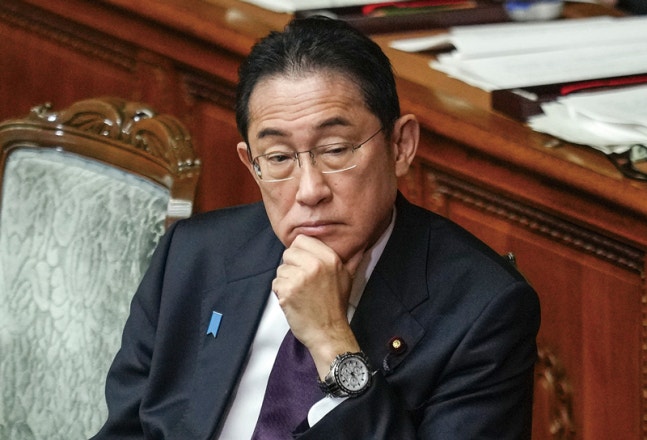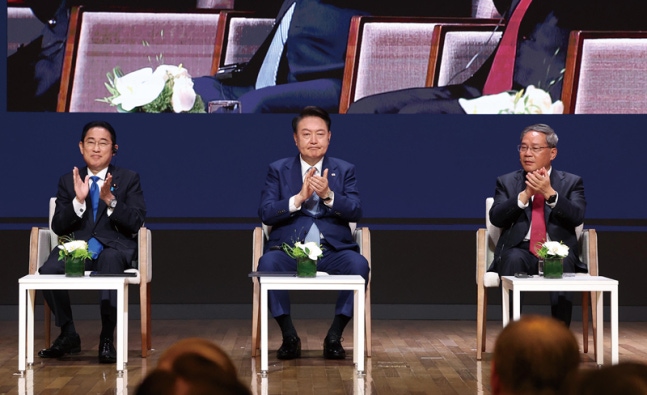Endless plummeting approval ratings… Crisis due to lack of policy expectations, crisis response capabilities, execution, and charm of the ‘4無’ ,
,
, “The approval ratings of the Kishida Cabinet continue to hit record lows. According to a poll conducted by Japan’s public broadcaster NHK released on June 10th (survey period June 7-9), the Cabinet’s approval rating stood at 21%, marking the lowest figure since the establishment of the administration in October 2021. A similar survey conducted around the same time (June 7-10) by Jiji Press also recorded 16.4%. This marks the lowest approval rating for a cabinet since the 2nd Abe Cabinet that regained power from the Democratic Party Cabinet in December 2012. With the Kishida Cabinet scheduled to finish its term in September, it continues to face a prolonged period of ‘ultra-low approval ratings.’ What are the reasons behind the decline in approval ratings for the Kishida Cabinet, and what might be the future direction?”,
,
, ‘The main reasons for the significant drop in approval ratings since the establishment of the Kishida Cabinet in October 2021 can be summarized into three major factors. Firstly, ① the controversial handling of the state funeral after the sudden death of former Prime Minister Abe in July 2022 and the subsequent mishandling of the unification of religions. Secondly, ② the confusion and mishandling during the introduction process of the My Number Card (Japanese version of a resident registration card) in the summer of 2023, and finally, ③ the inadequate response to the political funding issue raised by the Liberal Democratic Party since late 2023.’,
,
, ‘In addition, there were overlapping issues such as personnel failures within the Cabinet, the Prime Minister’s son’s party hosting controversy, and private use of government buildings. However, fundamentally, the government’s policies on the most pressing issue for the public, which is the significant rise in cost of living (Japan’s inflation rate is nearly 3% higher year-on-year each month, and real wages have been declining for 18 consecutive months), fail to garner public support and sympathy. In this context, there is a perception that there is a lack of policy expectations for the Kishida Cabinet, low execution capabilities for Prime Minister Kishida personally, a lack of crisis management abilities, and a lack of charisma as a leader.’,
,
,

Recently facing a crisis of declining approval ratings, Japanese Prime Minister Fumio Kishida ⓒEPA Yonhap,
,
, Mismanagement of Unification Religion and Political Funding Issues,
,
, “An interesting point is that despite such low approval ratings, the Kishida Cabinet continues to exist. Unlike the presidential system as in South Korea, the parliamentary system in Japan does not guarantee the tenure of the Prime Minister. Therefore, when Cabinet approval ratings drop, concepts such as the ‘Prime Minister Premium’ (the difference between Cabinet approval ratings and party support ratings that indicate the popularity of the Prime Minister) and the ‘Aoki Doctrine’ (which uses a 50% benchmark of the total of Cabinet approval ratings and party support ratings to gauge the collapse of the government) are often brought up. However, the Kishida Cabinet’s approval ratings have been continuously falling, erasing the ‘Prime Minister Premium’ and breaking the ‘Aoki Doctrine’ for a long time. In reality, even with the worst approval ratings where it wouldn’t be surprising if a replacement was made, how is the Kishida Cabinet still continuing?”,
,
, “Firstly, the absence of a ‘Post-Kishida’ figure. The LDP has failed to cultivate a strong successor to former Prime Minister Abe within the 1-stance system centered around Abe. This situation has persisted for several years. Both the former Prime Minister Suga and the current Prime Minister Kishida were born under the shadow of former Prime Minister Abe but have not shown stronger leadership than him, and there is no clear figure visible to replace him.”,
,
, “Figures like Ishiba Shigeru, Kono Taro, and Kishida Fumio, who enjoy public support, are not highly regarded within the LDP, making it unlikely for them to be elected as LDP leaders. Ultimately, the lack of a potent ‘Post-Abe’ or ‘Post-Kishida’ figure paradoxically underpins the continuation of the current Kishida Cabinet.”,
,
, ‘Secondly, an irony arising from the dissolution of LDP factions. Factions were the basis of Japanese politics (more specifically, LDP politics) and played a crucial role in changing cabinets. Depending on how much support a faction could gather, it determined the LDP’s party leader. However, the dissolution of the majority of factions due to political funding issues has made it difficult for the existing political strategies centered around factions to operate. The disappearance of factions that made up the Japanese Prime Ministers now enables the current situation to persist.’,
,
, ‘Thirdly, there’s a timing issue. The term of the House of Representatives, which was held in October 2021, expires in October 2025. However, the Prime Minister holds the power to dissolve the House of Representatives anytime before its term (4 years) ends and call for an election most advantageous for themselves and their party. Nevertheless, the current situation is not favorable for both Prime Minister Kishida and the beleaguered LDP due to the political funding law controversy. As there is still more than a year left in the House of Representatives term, there isn’t a significant reason to dissolve the House and call for an election. If the Prime Minister were to forcefully dissolve the House, considering only their own tenure, they would likely face considerable backlash from the LDP, the party backing them. As this situation persists, an ironic situation prevails where the Kishida Cabinet continues despite the ongoing decline in approval ratings.’,
,
,

President Yoon Suk-yeol, Japanese Prime Minister Fumio Kishida (left), and Premier Li Keqiang of China (right) applaud after listening to the reports of the three countries’ economic leaders during the 8th trilateral business summit of Korea, Japan, and China held at the Federation of Korean Industries in Jung-gu, Seoul on May 27. ⓒYonhap News,
,
, Does the dismantling of faction politics save Kishida?,
,
, ‘Prime Minister Kishida’s term (specifically as the LDP leader, three years) is set to end in September, where three scenarios can be anticipated. Firstly, Kishida resigns without a reappointment by September, and a new LDP leader (a new Prime Minister) emerges. Secondly, at the most opportune time for both the Prime Minister and the LDP, the House of Representatives is dissolved, leading to elections benefiting Kishida and the LDP followed by his reappointment. Thirdly, without finding a suitable ‘Post-Kishida,’ the Prime Minister continues in his post. In this case, at least until the expiration of the term of the House of Representatives in October 2025, together, he can explore dissolving the House for re-election.’,
,
, ‘Despite criticism from the Japanese public amid low approval ratings, while the prolonged existence of the Kishida Cabinet may not bode ill for South Korea, the continuity of the Kishida Cabinet in Japan is not based on a stable domestic foundation. Although Prime Minister Kishida’s initiatives in improving Japan-Korea relations have failed to meet expectations and have not been proactive, it remains evident that Japan values its relationship with Korea. Moreover, refraining from making statements or actions that provoke Koreans serves as a positive factor in Japan-Korea relations. However, the current Kishida Cabinet lacks a stable domestic footing even if it continues, increasing the likelihood of remaining weakened. Continued observation of Japan’s political situation is necessary to nurture Japan-Korea relations.’,
,
,

